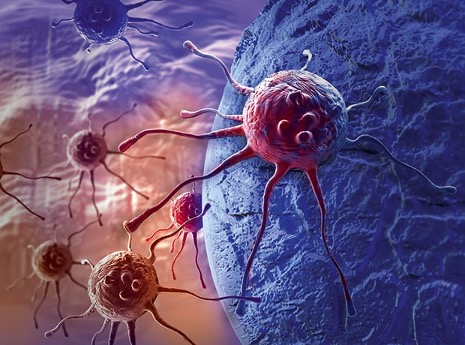US researchers develop algorithm test to identify aggressive ovarian cancers
March 9, 2024
Source: drugdu
 247
247
 Researchers from Johns Hopkins Kimmel Cancer Center and the Johns Hopkins University School of Medicine have developed an algorithm to identify high-risk precancerous lesions that lead to ovarian high-grade serous carcinoma (HGSC).
Researchers from Johns Hopkins Kimmel Cancer Center and the Johns Hopkins University School of Medicine have developed an algorithm to identify high-risk precancerous lesions that lead to ovarian high-grade serous carcinoma (HGSC).
Published in Clinical Cancer Research, researchers aimed to develop a tool that could detect and stratify serous tubal intraepithelial carcinomas (STICs) based on key genetic alterations and mutations.
STICs are lesions that are presumed to be the main precursors of HGSC, the most common form of ovarian cancer in women.
Using a technique called Repetitive Element AneupLoidy Sequencing System (RealSeqS), researchers sequenced 150 DNA samples and analysed the level of aneuploidy, missing or extra DNA chromosomes, in STIC versus HGSC and normal-appearing samples.
Results showed that STIC samples had more non-random genetic alterations, including whole and partial deletions of chromosome 17 in the tumour suppressor p53 proteins, while normal-appearing samples had low levels of aneuploidy.
The team suggests that the loss of chromosome 17 could offer a possible explanation for the inactivation of the TP53 and BRCA1 genes, which are located on chromosome 17 and represent the tumour suppressor associated with the development of HGSC.
Researchers developed the RealSeqS-based algorithm for fallopian tube aneuploidy pattern in STIC (REAL-FAST) to identify five distinct groups of precancerous lesions in fallopian tubes, including a STIC subgroup with unique chromosome alterations associated with increased proliferation and abnormal growth.
Additionally, REAL-FAST accurately detected the presence of STICs and HGSCs 95.8% of the time and correctly ruled out cancer where it did not occur 97.1% of the time.
The findings suggest that only some cases of STICs progress to HGSC, which is associated with a non-random increase in chromosomal abnormalities.
“This test is about identifying precursor lesions before they progress to cancer,” said Christopher Douville, assistant professor of oncology, Johns Hopkins University School of Medicine.
He added: “This research could make a rapid impact on patient care by providing clinicians with diagnostic alternatives with quantitative answers.”
https://pharmatimes.com/news/us-researchers-develop-algorithm-test-to-identify-aggressive-ovarian-cancers-earlier/
By editorRead more on
- Gusekirumab Injection Accepted by CDE, Multiple Pipelines Advancing Simultaneously March 4, 2026
- Yifan Pharmaceutical’s teriparatide injection has been accepted by the CDE (Center for Drug Evaluation), adding a new domestic player to the osteoporosis treatment field March 4, 2026
- //news.yaozh.com/archive/47318.html PD-1 sales surge March 4, 2026
- A major breakthrough! Roche’s oral BTK inhibitor achieves its third Phase III clinical trial victory, a game-changer in the multi-billion dollar MS (manufactured pharmaceuticals) market. March 4, 2026
- GB19 Injection Approved for Clinical Trials of Cutaneous Lupus Erythematosus March 4, 2026
your submission has already been received.
OK
Subscribe
Please enter a valid Email address!
Submit
The most relevant industry news & insight will be sent to you every two weeks.



